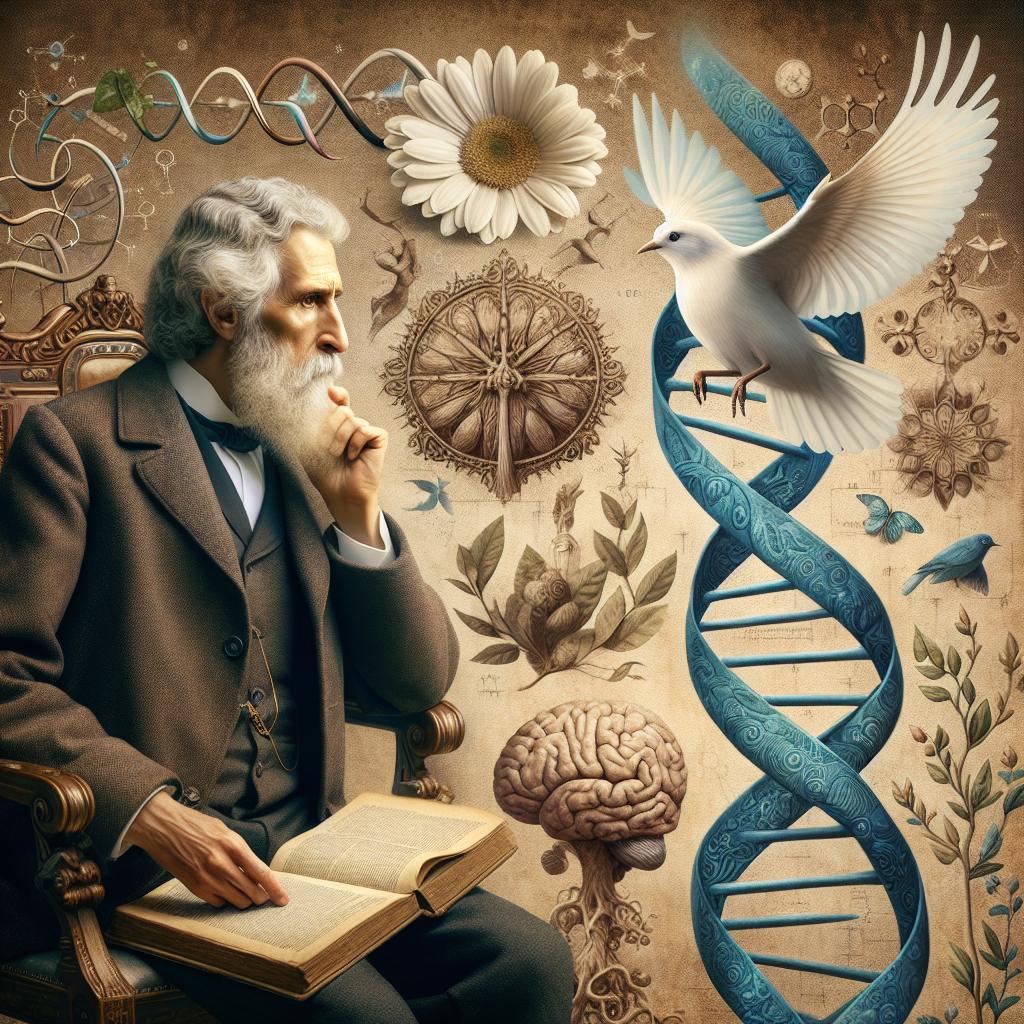
Would Darwin Embrace Christian Values Today? Revealing the Truth
Published: 26 September 2024
Would Darwin be a Darwinist today?
Charles Darwin, known for his theory of evolution, made significant contributions to the scientific community. However, if he were alive today, would he still be a Darwinist? Let's explore this question by examining key aspects of Darwin's ideas and their implications.
1. The Origin of Life
In his book "Origin of Species," Darwin focused on the diversity of life but remained agnostic about the origin of life itself. He recognized the complexity of this question and admitted that thinking about the origin of life was as futile as pondering the origin of matter. Today, with our increased understanding of the complexity of even the simplest living organisms, the spontaneous origin of life becomes an insurmountable challenge for those who deny creation.
Scientists have discovered that living cells are not simple blobs of jelly but intricate assemblies of nano-machines. These cells contain complex programs encoded in DNA, which specify how each cell functions. The idea that such complexity could arise spontaneously without intelligent design is increasingly untenable. The weight of evidence from DNA research has led even staunch atheist philosopher Antony Flew to abandon atheism in favor of acknowledging that intelligence must have been involved in the creation of life.
Why This Matters: The complexity of living organisms challenges the notion that life arose through purely naturalistic processes. It points toward an intelligent Creator.
Think About It: Reflect on the incredible complexity within your own body and consider how it aligns with the idea that life emerged without a guiding intelligence.
2. Natural Selection
Darwin's theory relied heavily on natural selection as the driving force behind evolution. He believed that beneficial variations accumulated over time through natural selection, leading to new species. However, Darwin was unaware of Gregor Mendel's work on genetics, which would later reveal the limits of variation and challenge his views.
Mendel's experiments demonstrated that genetic variation is limited and that new traits are not spontaneously generated but rather exist within the genetic information of parents. The discovery of mutations, accidental changes to genes, was later incorporated into the evolutionary framework to account for the new genetic information required for evolution. However, further research has shown that mutations primarily lead to the loss or corruption of genetic information and do not create new functional gene control systems.
Why This Matters: The limitations of natural selection and the destructive nature of mutations cast doubt on the ability of purely naturalistic processes to account for the diversity of life on Earth.
Think About It: Consider how natural selection, which only selects from existing genetic information, can explain the origin of complex structures and features in organisms.
3. Transitional Fossils
Darwin anticipated that the fossil record would reveal numerous intermediate forms, or transitional fossils, documenting the gradual changes between species. However, despite over 150 years of searching, these transitional forms have remained elusive. Paleontologists acknowledge the absence of many intermediate forms hypothesized by Darwin.
The lack of transitional fossils challenges Darwin's theory and suggests that the geological record is incomplete. While Darwin attributed this to the limitations of scientific knowledge at the time, this explanation has not been vindicated by subsequent discoveries.
Why This Matters: The absence of transitional fossils raises questions about the gradual evolution of species and challenges Darwin's theory as a comprehensive explanation for the diversity of life.
Think About It: Consider why, after extensive fossil exploration, researchers have not found the expected abundance of transitional fossils. What does this imply about the theory of evolution?
4. The Tree of Life
Darwin proposed that all living things could have evolved from a single original life form, illustrating this concept with his famous "tree of life" diagram. He believed that unlimited variation and natural selection would lead to the development of diverse species over time. However, recent advancements in molecular biology have challenged this idea.
Molecular phylogeneticists have found inconsistencies between different molecular data sets, making it difficult to construct a single universal tree of life. This contradicts Darwin's assumption of a unified tree and raises doubts about the accuracy of his representation.
Why This Matters: The inability to establish a definitive tree of life undermines the central idea of common descent and the gradual evolution of all living things from a single ancestor.
Think About It: Reflect on the implications of the challenges to the tree of life concept and how it impacts our understanding of the origin and diversity of life.
Conclusion
If Charles Darwin were alive today, would he still be a Darwinist? While we cannot know for certain, it is clear that his ideas face significant challenges based on our current knowledge. The complexity of life, the limitations of natural selection, the absence of transitional fossils, and the difficulties in constructing a comprehensive tree of life all cast doubt on the sufficiency of Darwinian evolution as an explanatory framework.
Why This Matters: The ongoing debates surrounding Darwin's ideas remind us that science is not settled and that alternative perspectives deserve consideration.
Think About It: Reflect on the relationship between scientific theories and our understanding of the natural world. How can we critically evaluate scientific ideas while remaining open to new evidence and interpretations?
